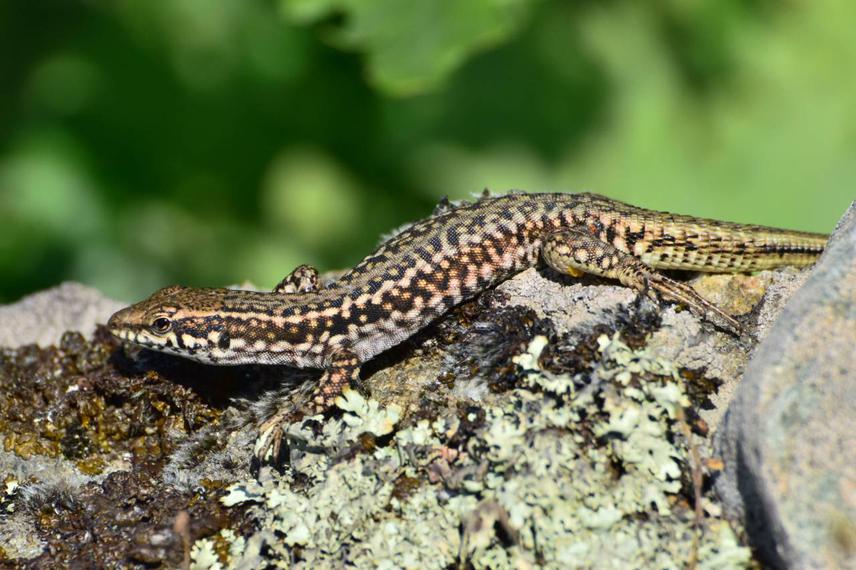Gorana Danon
Knowing the state of the habitat in Pčinja river valley and assessing major threats to it will help constructing a long term conservation strategy to include in future development plans for this region.
The focus of our project will be:
• Starting educational and public awareness campaign with the special emphasis on distribution, fitness and conservation of Serbian populations of Podarcis erhardii and their habitats.
• Estimating levels of anthropogenic stress in lizard populations, caused by degradation of habitat through infrastructural development using parasitological and morphological parameters of lizard Podarcis erhardii.
• Documenting habitat degradation in the field by noting and counting environmental incidents: animal deaths, landslides, forest fires, illegal logging, and illegal dumpsites.
• Checking whether literature distribution data on herpetofauna of this region corresponds with the current situation in the field.
• Sharing our results on social media pages making them easily accessible to wider audiences and societies for nature protection.

Podarcis erhardii.
Pčinja river valley is unique habitat in Serbia, with extraordinary biogeographical features, where Mediterranean species populations penetrate towards continental climate. The peculiar combination of sub-Mediterranean and continental climate, found nowhere else in Serbia, results in a biodiversity hotspot, especially for reptile species. Although some parts of it are protected, Pčinja river valley is still under the danger caused by deforestation and erosion, agricultural exploitation, illegal timber trading and inadequate tourism management.
The Pčinja river valley is one of the regions with the largest number of endangered and protected reptile species in Serbia: Nose-horned Viper (Vipera ammodytes), Four-lined Snake (Elaphe quatuorlineata), Dahl's Whip Snake (Platyceps najadum), Hermann's Tortoise (Testudo hermanii), Spur-thighed Tortoise (Testudo graeca), European Copper Skink (Ablepharus kitaibelii), Erhard’s Wall Lizard (Podarcis erhardii) and Balkan Wall Lizard (Podarcis tauricus). Our field trips will be organized in two localities: vicinity of Monastery Prohor Pčinjski at “Dolina Pčinje” Protected Landscape and river Crnovska reka gorge, near Trgovište.
We will explore how habitat related pressures influence one of the rarest species in Serbia – lizard Podarcis erhardii. Actions that will protect these lizards and their habitats could benefit all species that are related to sub-Mediterranean climate in Serbia. Serbian populations of Podarcis erhardii are the north margin of the species range. Populations at the margins of species distribution range have significant biogeographical importance and evolutionary potential, since they are probable sites of future speciation events. We will explore the distribution and fitness of lizard Podarcis erhardii and other syntopic lizard species and measure the effects of habitat-related pressures through parasitological and morphological parameters. It will give us an estimation of levels of anthropogenic stress in lizard populations, caused by habitat degradation. Lizards are mostly jeopardized by habitat destruction through the infrastructure development related to the recreational tourism.
We will also further explore herpetofauna of the region and raise public awareness about this precious habitat and its biological richness. Gathered info can be used for finding better solutions for fauna conservation and protection of this area. Further exploration of habitats and reptile diversity in Pčinja region will provide valuable information about number of reptile species which are living there and their distribution pattern. The number of species can be increased due to the potential of finding new, previously undetected ones of the sub-Mediterranean species, which could have possibly expanded their ranges northward because of the climate change.